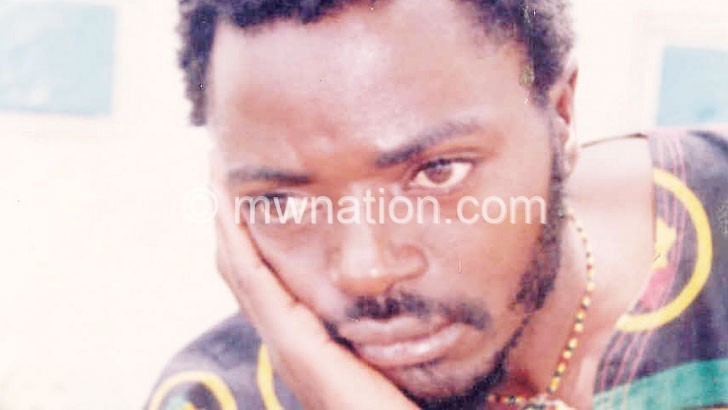Tracing Matafale
In the late 1990s, Balaka District had become the hub of Malawi music, as it was home to renowned musicians such as Mlaka Maliro, Patrick Tung’ande and Lucius Banda, and groups such as Zembani, Band, Charles Nsaku and Alikutauni Sounds, and the mighty Alelluyah Band.
That time, music enthusiasts were looking up to Balaka to feed their ears with quality compositions. However, there was a sudden turn-around. A new voice emerged from Singano Village in Chileka, Blantyre.
Evison Matafale, who was born on November 20 1969, stormed the music scene in 2000 and dropped his debut album, Kuimba 1.

It was an album that was personified by his powerful voice, unique reggae beat and a spiritual socio-political philosophy that became his trademark.
Patrick Kamkwatira, a former Power FM101 radio personality described Mafatale as a unique person.
“Matafale was talented way beyond his time. He was a real superstar. His voice was extraordinary, his writing was extraordinary, and his compositions were extraordinary. He was an extraordinary individual who [probably]
was born in the wrong place at the wrong time. Malawi was too small for Matafale, especially at that time,” he said.
Kamkwatira added that even today, 17 years after his death, Matafale’s music is in a class of its own.
“I remember the way he composed Time Mark at the time of the terrorist bombing in the US. He did it the same night of the bombing and by the next day, it was ready. There will never be another Matafale, ever,” he added.
Matafale’s second album, which was produced at MC Studios by legendary producer Chuma Soko, contained masterpiece compositions such as Watsetsereka, Poison So Sweet, Chauta Ndi Wamphamvu, Wolakwa Ndani and Nkhawa Bii.
He was backed by the Wailing Brothers Band, a music group that was based in Chilobwe. It was founded by his cousin Elias Chokani and comprised his siblings Louis, Takudziwani and Paul.
While reggae fans were still enjoying songs from his first album, Matafale released Kuimba 2 in early 2001, a music compilation which took the music industry by storm.
This second album rode on the strength of such compositions as Yang’ana Nkhope, Freedom, Olenga Dzuwa, Zaka Zonsezi and Nkhoswe. If there were any doubts about his ability, then his second offering sent a firm message that he was in for the long haul.
The album became talk of the town and enjoyed overwhelming airplay on multiple radio stations and went on to top music charts on reputable stations that time.
Befittingly, the artist was that year voted ‘Musician of the Year’ in MBC’s Entertainers of the Year, while his song Yanga’na Nkhope took second position in the ‘Song of the Year’ category, it was bettered by Coss Chiwalo’s smash-hit Wakwatira.
Throughout his Kuimba series, which were later adopted by Black Missionaries Band, a group he founded and backed him on his second album, the artist stuck to themes such as religion, spirituality, hope and love.
Black Missionaries leader Anjiru Fumulani says the group appreciates the ground work that Matafale laid for their career. But he admits it has not always been easy without him.
“We have gone through a lot. Faced several ups and downs, but with the grace of God, we have survived till today. For that we thank God,” he said.
At the time of his death, Matafale had just released a blazing song titled Time Mark, which was inspired by the historical events that took place on September 11 in 2001 in New York, United States.
Music critic Gregory Gondwe said 17 years after Matafale’s passing, Malawi is yet to have anyone as talented as he was.
“The uniqueness of Matafale was his unapologetic approach to music. We cannot talk about Malawian reggae music without mentioning Matafale. He is the only musician who achieved so much in such a short-time,” he said.
Gondwe said Matafale’s musical career is epitomised by the release of Kuimba 2, which proved him a rastaman with a mission and whose voluminous potency is talked about every day.
“Matafale’s lyrics carried unquenchable sense of fury, cynicism, irony and both a poetic and direct nature,” said Gondwe.
Seventeen years after his death, the group that Matafale left is still playing music under the stewardship of Anjiru Fumulani. So, far they have released nine albums and they continue to enjoy some popularity.
Again, 17 years later, we can only speculate where he could have been today.
Additional reporting by Brian Itai.





